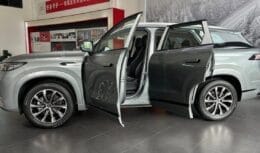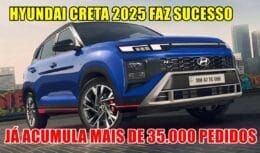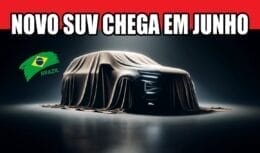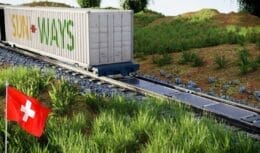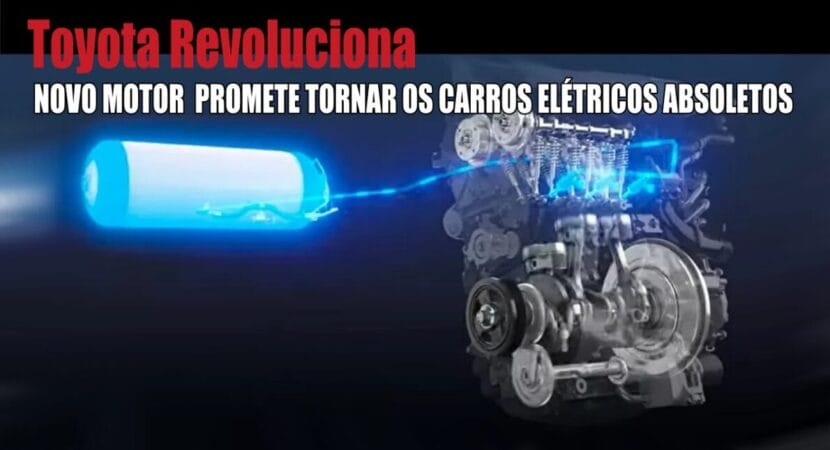
Toyota revolutionizes with new advanced engine: tested in Corolla Cross and Yaris, this incredible 1.6 H2 engine promises to make electric cars obsolete!
Toyota revolutionizes with new Corolla engine Cross and Yaris that promises to leave electric cars behind! The Japanese automaker is advancing in the development of alternative forms of propulsion, pioneering the hybrid vehicle segment with the launch of the Prius in 1997. In addition to hybrids and electric vehicles, the brand has a strong commitment to hydrogen-powered vehicle technology.
Recently, Toyota designed an innovative combustion engine that uses liquid hydrogen as fuel, offering a promising alternative to electric cars in the quest for decarbonization. This engine, an adaptation of conventional combustion engines, operates on a different principle from that used in the Mirai, a sedan that generates energy from fuel cells that process hydrogen gas.
New technology was applied to the 1.6 turbo engine of the GR Yaris and GR Corolla models, and has already been tested in the Corolla Cross
The storage of liquid hydrogen in H2 engines requires low pressure conditions and temperatures below -250ºC, although it allows an energy density 50% higher than that of gas in the same volume.
This technology was applied to the 1.6 turbo engine of the GR Yaris and GR Corolla models, and has already been tested on the Toyota Corolla Cross, demonstrating the ability to emit only water vapor through the exhaust, with insignificant emissions of nitrogen oxide.
Adaptations to the conventional engine
Adaptations were necessary for the safe use of this fuel, such as a high pressure injection system and reinforced components, due to the high flammability of hydrogen. Despite the advantages, mechanics face challenges, such as the high cost of fuel compared to gasoline and electricity, in addition to limited refueling infrastructure.
In motorsport, Toyota tested this technology with the GR Yaris in the World Rally Championship and the GR Corolla in endurance races, introducing the GR H2 Racing Concept prototype with the aim of competing in Le Mans. These tests also include on-road applications, with the Corolla Cross H2 running since 2022.
Although hydrogen's energy density is extremely high, it does not produce as much energy as conventional fuels in combustion engines. The lack of official power and torque data for the 1.6 H2 engine prevents direct comparisons with other models, such as the Toyota GR Corolla, but a similar converted engine, the 6 twin-turbo V3.5 used in the HiAce, shows a significant reduction in performance.
Toyota managed to extract 24% more power and 33% more torque from the GR Corolla H2 in endurance races
However, Toyota and Yamaha are collaborating on the development of a 8 V5.0 engine fueled by liquid hydrogen, aiming to ensure robust performance in future models, including motorcycles.
Increases of 24% in power and 33% in torque were achieved in the GR Corolla H2 racing models, indicating potential for continued improvements.
Toyota continues to invest in this technology as a viable alternative to fuel cell systems
Cost, however, remains a significant barrier. A complete Mirai costs around US$50 without incentives, and can be reduced to below US$30 with them. Toyota predicts a 37% cost reduction in hydrogen systems for the next generation, with the possibility of a 50% reduction if 200 units are sold by 2030.
Toyota continues to invest in this technology as a viable alternative to fuel cell systems, but it still faces significant challenges, including the development of water electrolysis technologies and the expansion of the supply network. The company is determined to explore this option without committing exclusively to a single solution.
I'd love to know if you've ever owned a Toyota or are thinking about getting one. Tell us in the comments section about your experience with the brand. Don't forget to leave 5 stars and activate CPG notifications to keep up with all the latest news from the automotive world. To the next!

